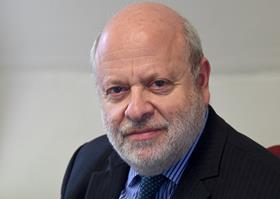There was a report in the legal press last week that the Legal Services Board (LSB) will begin work on a review of lawyers’ continuing competence, including the possibility of formal periodic reaccreditation. The same article said that the LSB had concerns about ‘overreliance’ on continuing professional development (CPD) to provide assurance of continuing competence.

This is not a surprise. I wrote six months ago that this had been signalled as part of the LSB’s business plan for 2019/20. And I questioned at the time whether our current CPD rules were up to the job that they set out to do.
I am currently engaged in an EU-funded project called REFOTRA, which stands for the recognition of foreign training. It is part of the longstanding aim of the EU to assist lawyers who undertake their CPD in another member state to have that training recognised in their home state as part of that home state’s CPD rules.
In other words, if I as an Italian lawyer go to France to undertake a course in, say, lawyers’ ethics, can I have that course recognised as part of my Italian CPD? In many member states, there is such recognition, but it is a rather hit-and-miss affair. A great number of member states have detailed rules on CPD, and the kind of problems which arise from cross-border training are the following:
- Was the training provided by a body which is authorised to provide lawyers’ training in the member state where it took place?
- If the course lasted X hours, how does that translate into a system which is run on points or credits (and vice versa)?
- Is there sufficient evidence available that the lawyer went on a particular course, and as to its content and length?
These questions seem laughable to the SRA, because the SRA no longer cares about the details of the training which a solicitor undertakes. Outcomes, outcomes, outcomes, it says, and it wants to see no hard evidence of what training a solicitor has undertaken. Solicitors are now bound only by SRA principle 5 from the SRA handbook to provide a proper standard of service to clients, and therefore to meet the requirements of the Statement of Solicitor Competence, without further detailed rules or requirements.
Good for the SRA, you might think – except that we solicitors are now facing a review of continuing competence because of concerns about overreliance on CPD as a sign of competence. If we had kept our previous more detailed CPD rules, instead of throwing them out some time ago, would we be facing the prospect of a similar review now?
As part of the REFOTRA project, a report has been drawn up showing the detailed CPD rules in all those member states which have them. The Czech Republic, Greece, Portugal and Spain are the only member states either without current CPD rules or without plans to introduce them soon.
As usual in such surveys, the results of CPD systems show a wide variety of differences. Some member states have very detailed rules on how much CPD you must take and in what topics (Italy and Irish solicitors, for instance). Others are more liberal, allowing a much freer choice of topic and provider (Finland and Sweden). At the outer extreme of the most liberal wing – as is also traditional – lies our own profession, with no set rules at all.
There is not much data on where lawyers go for their cross-border CPD. But the Italian Bar provided informal statistics on where Italian lawyers go, and the results were very interesting. In both 2017 and 2018, London was by far the most popular city for cross-border training, and in 2018 London attracted more than twice the number of Italian lawyers for this purpose than any other European city.
I assume that there are a number of reasons for such popularity: first, the English language, which has become a lingua franca; and then, presumably, the number, quality and promotional activities of the legal training providers operating in London.
The curious thing, of course, is that, regardless of Brexit, it will be in the interests of these UK legal training providers to keep abreast of any possible outcome of the REFOTRA project, because – to continue providing cross-border training to EU lawyers – they will have to participate in the recognition processes which will assist such foreign lawyers, assuming that any eventual system also applies to training taken outside the EU.
I know that the LSB is intending to look at periodic reaccreditation, but this will presumably not be wholly separate from CPD. Therefore, I hope that the LSB will also look at the great variety of CPD systems existing across the EU to see whether there are lessons to be learned for our own CPD future.































No comments yet